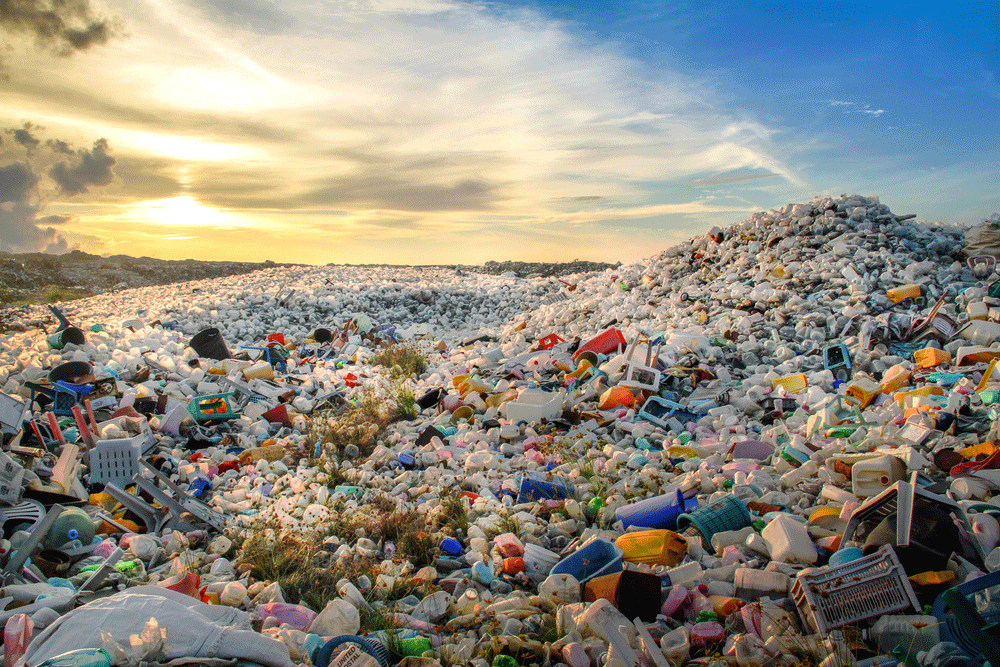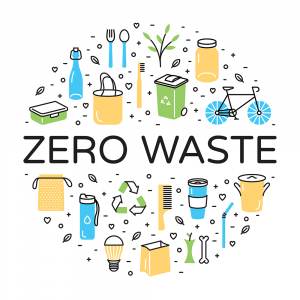
25 Jan What Our Number 1 “R” Should Be Right Now: Refuse
“Keep learning; don’t be arrogant by assuming that you know it all, that you have a monopoly on the truth; always assume that you can learn something from someone else” – Jack Welch.
Mother Nature is a living organism. She inhales and exhales, giving us the ocean tide and the sea breeze. Where she itches, there is an earthquake, and when she cries we experience rainfall.
Like any living organism, Mother Nature changes and adapts. Following years of misuse, our environment has become extremely volatile, which has demanded that we alter our habits and practises to maintain harmony with her.
Buying recyclable and biodegradable products was an effective way of living an eco-friendly life 10 years ago, but it’s not sustainable in the climate we find ourselves in today. Today, it is more beneficial to the planet to forgo biodegradable and recyclable products altogether. Here’s why:
WHAT DOES BIODEGRADABLE ACTUALLY MEAN?
According to the Oxford English Dictionary, it is a substance or object capable of being decomposed by bacteria or other living organisms.
Because the definition doesn’t give any kind of time frame as to how long it takes for the substance of object to breakdown, one could class plastic as biodegradable because it does decompose – eventually.
Interestingly, the international standard is that the item must be 90% decomposed within six months to be considered as biodegradable. Many products on the market cannot achieve this.
SO WHERE DOES THAT LEAVE US?
We’ve been told by eco-warriors and lobbyists that replacing plastic products with more environmentally-friendly substitutes will spare the environment the admin of having to dispose of our waste. And although true, the theory doesn’t apply when humanity continues to dispose of trash the way they do.
Biodegradable material needs very specific conditions (50°C and plenty of moisture) in order to breakdown. If the products end up on a landfill without these conditions and other conventional material, the likelihood of decomposition is compromised. Worse still, if it lands up in the ocean it might very well still choke a fish to death of end up lodged in a seagulls digestive tract.
THE TRUTH ABOUT RECYCLING…
… is that there is no single truth about recycling. Therein lies the problem.
Since biodegradable products flooded the market, it has become more difficult to decide which recycling bins to put our trash into. Does bioplastic belong in the plastic bin or in the regular trash bin? If we put our waste into the wrong coloured bun, we end up contaminating the entire recycling system – rendering it obsolete.
Until there is a universal understanding of the recycling system, and how to go about recycling effectively, we are stuck in an ineffective cycle.
AN INCONVENIENT TRUTH
More consumers are adopting a green lifestyle, which means manufacturers who refuse to keep up with the times are being left behind.
But are they?
Eco-labelling is being manipulated by some immoral businesses that want to trick eco-friendly consumers while maintaining their bottom line. The companies in question will market their products in a way that convinces consumers their products takes the health of the environment into consideration when that is not the true at all.
It is very difficult to live a completely sustainable life when there are proverbial wolves in sheep’s skin grazing with the pack.
SO WHERE DOES THAT LEAVE US?
The sorry state of our situation demands that we rework our waste management. We cannot deny, either, that in our procurement of greener materials, we have weakened our already fragile eco-system.
WHAT ACTION SHOULD WE BE TAKING? REFUSE AND REUSE
In order to avoid misusing it any further, we need to consider substituting biodegradable products with reusable ones. The survival of our planet calls for us to say no to plastic and biodegradable straws, and purchase reusable metal ones instead. Forgo bamboo cutlery and crockery; take good care of your porcelain plates and silverware. Buy second-hand when they crack or spoil. Let us all use what we already have as opposed to taking more from Mother Nature.
Doing good isn’t easy, that’s why so few succeed at it. You want to do right by Mother Nature, I can tell. All she requires that we unlearn the mindset of discarding things and adopt the practice of reusing everything we can. It needs to start today; both her and our lives depend on it.
REFERENCES:
https://www.mamalina.co/why-biodegradable-is-a-false-label-and-solution/
https://www.livescience.com/63597-compost-trash-in-landfills.html




No Comments